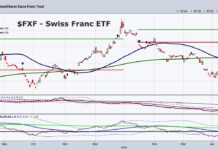Seinfeld: “Aww, you’re crazy”
Kramer: “ Am I? Or am I so sane that you just blew your mind?”
Somewhere in America, a very observant 11-yr old passenger is asking her Dad, “why is gas so cheap?” As oil prices continue their descent early in 2015, countless explanations for crude’s drop have surfaced, yet my takeaway gets prompted by the keen eye of a younger generation more accustomed to seeing the price at the pump start with a 3 instead of a 1.
Inflation vs. Deflation. Schiff vs. Krugman. Inflationistas vs. the Fed. I’m challenged to find another major economic statistic that has confounded more investors (including myself) these past few years more than inflation. We’ve seen deflationary fears, trillions of dollars of QE (quantitative easing), as well as inflationary spikes. Point to falling prices as proof deflation will rear its ugly head and your colleague will point to a checkbook ransacked by more expensive health care, groceries, property taxes and the like. Lament to your neighbor that we’re on the verge of 70’s like inflation and they’ll show you the Samsung smartphone they bought for $1 over the holidays and their snazzy $6 Old Navy fleece pullover.
Inflationistas – this is the crowd that believes someday the trillions of dollars pumped into the markets by the Federal Reserve, Bank of Japan, European Central Bank, et al will eventually result in massive, runaway inflation. I understand the argument, but I’ve never really understood the ‘someday’ part. Do we envision a scene where one day we all stop, look around at each other and say “oh man, we all just realized central banks around the world have printed umpteen trillion dollars in new money and this must now mean inflation, and we’re all doomed!” I understand markets aren’t always completely efficient in their forward-looking tendencies, but it’s a little strained to imagine ‘all this money printing’ has occurred without an effect. Their argument has also edged a few years closer to ‘someday’.
The takeaway I hinted at in my opening comments? I think the inflationistas have already been proven right. They won, we got the inflation they had been predicting all along, but nobody is there to spike the ball. Please bear with me as I explain – inflation is currently running just under the Fed’s mandated target of 2% (roughly). But what if that is massive inflation? (cue Kramer’s crazed response to Jerry) Quickly close your eyes and picture everything that comes to mind regarding inflation. If you’re an American, it’s quite likely your visualization closely resembled what the directors of Argo and Miracle depicted in their movie’s intros. Your Aunt Bea going on about how her first house had a mortgage of 14%, and Grandpa heckling you to wear an extra sweater when it gets cold only reinforces our notions of inflationary times.
Inflation is defined as an increase in the general price of a basket of goods that’s representative of the economy as a whole. Current times may demand a re-thinking. If i = the inflation rate, then (i-MI) would equal the inflation rate with monetary influence backed out. So if (i-MI) were to equal -4%, then an economy currently printing 2% inflation, would technically be experiencing 6% inflation, getting close to the type of figures some think monetary stimulus will evolve inflation into. If we back out Global QE, there is virtually ZERO chance inflation would be 2%. On the flip-side, if the economy was going to naturally experience inflation (i-MI) of 2% without monetary expansion, and then Central Banks took extreme actions, creating 8% inflation, what in theory is the difference?
Again, I truly believe the inflationistas have won, but they just don’t realize they’re supposed to spike the ball. Our psychologically cemented opinions of what inflation is are keeping them/us from realizing their victory, a victory that ironically, and simultaneously, Central Banks around the world have also claimed by avoiding deflationary spirals and keeping inflation closer to a certain mandate. That their inflation has likely weaved its way into other economic assets (i.e. stocks, real estate, and most anything financed by a zero interest rate policy), only confounds the comparisons to how we gauge inflation. If we operate in an economy where you can drive to your “office” (otherwise known as an iPhone, cup of joe from Starbucks and free Wi-Fi) in your electric car to Skype with a colleague in Amsterdam, maybe our psychologically cemented understanding of what constitutes inflation needs a bit of a disruption as well.
Thanks for reading.
Heart Capital does not offer investment advice via this medium. Under no circumstance whatsoever do these postings, opinions, charts, or any other information represent a recommendation or personalized investment, tax, or financial planning advice.
Follow Ross on Twitter: @HeartCapital
No position in any of the mentioned securities at the time of publication. Any opinions expressed herein are solely those of the author, and do not in any way represent the views or opinions of any other person or entity.








